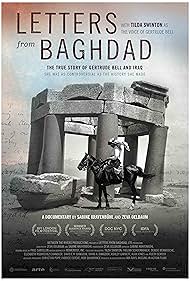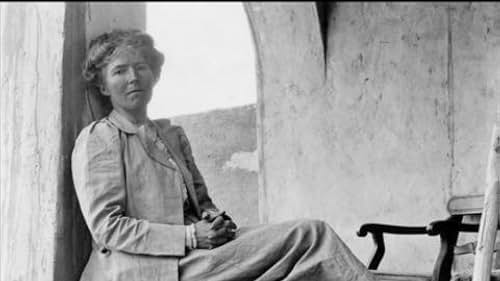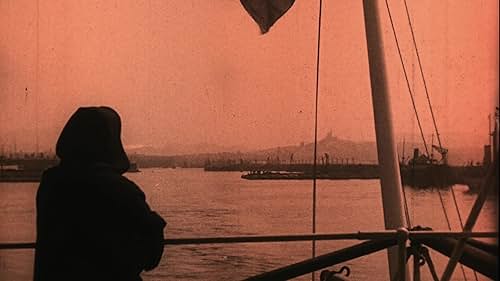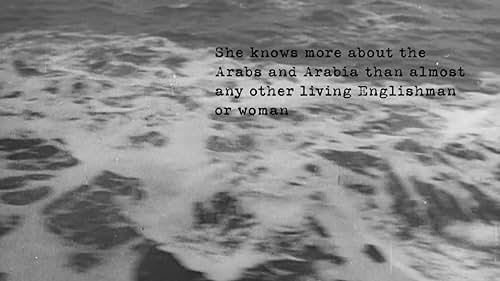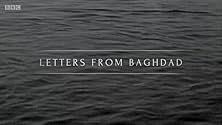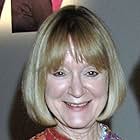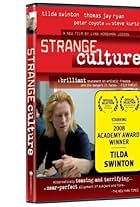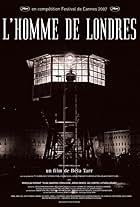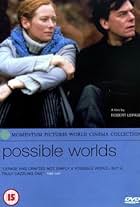Gertrude Bell, the most powerful woman in the British Empire in her day, shaped the destiny of Iraq after WWI in ways that still reverberate today.Gertrude Bell, the most powerful woman in the British Empire in her day, shaped the destiny of Iraq after WWI in ways that still reverberate today.Gertrude Bell, the most powerful woman in the British Empire in her day, shaped the destiny of Iraq after WWI in ways that still reverberate today.
- Awards
- 2 wins & 2 nominations
Photos
Tilda Swinton
- Gertrude Bell
- (voice)
Zaydun Khalaf
- Fakhry Jamil
- (as Zaydum Khalad)
Storyline
Did you know
- GoofsThis factual mistake happens in the German version. In the movie a title card reads: "Capture of Baghdad from the Turks: General Maude's Victory, March 11, 1917". This of course means that British forces under General Maude have captured Baghdad. However, the German version subtitles this as "Einnahme Bagdads durch die Türken: General Maudes Sieg, 11. März 1917". This translates as "Turkish forces capture Baghdad: General Maude's Victory, March 11, 1917". An obvious mistake.
- ConnectionsFeatures Mit dem Auto ins Morgenland (1926)
Featured review
... and it is the only reason I knock even one star off, because for what it is, this is a perfect documentary.
Based on the title, I assumed it was going to be about something relatively recent, such as letters from soldiers in Iraq over the last two decades. To my surprise it was a more distant history lesson going back over 100 years.
It was presented ala Ken Burns style with old photos of the period accompanied by voice actors reading the words of various historical figures, centering on the journal of a young, affluent, well educated, and quite atypically adventurous, late Victorian era British lass, Gertrude Bell, who began traveling in the middle east at a young age, learned Arabic, fell in-love with the various Arab cultures, and encountered a host of notable personages including T.E. Lawrence himself. Evidently her forward thinking attitude and influence endeared her to many of the local tribes while stirring up distrust in the old Ottoman Empire, who considered her a British spy.
Because of her accumulated vast Middle East knowledge, as WW1 approached, she (not unlike T.E.) was eventually put to work in the British Foreign Affairs Office, but, because she was a woman, most of the places to which she was assigned undervalued her and didn't quite know how to best employ her talents. She lost the love of her life during the failed effort at Gallipoli in 1915. His loss Left her devoted to the one thing that they had shared and mutually loved, the Middle East. Like Lawrence, she was an early advocate for an independent Arab State, and both during and after WW1, her empathetic understanding of the various ethnic and religious cultures including Arab and Jewish populations made her a trusted mediator among many of the indigenous people and a growing necessity for the British Empire.
The British had realized early on that transitioning from coal to oil would be essential to fuel their merchant fleets and the navy providing security for their massive empire, and that oil was plentiful in the middle east. So, when the allied powers gained post war control in the region, they promptly began carving up the area to best suit their purposes. The European goal was the establishment of loyal vassal kingdoms who would allow perpetual access to their most highly valued and as yet under exploited commodity, oil. Along with creating Saudi Arabia and a host of smaller Arab states, they also gave birth to Iraq. So Ms. Bell, with the best of intentions, was still used by all parties involved. Thus, in this historical retrospective, she can rightfully be called an unintentional founder of the modern Middle East, with all of its problems.
Highly recommended as a documentary on a key piece of Mideast history that is not known very well.
Based on the title, I assumed it was going to be about something relatively recent, such as letters from soldiers in Iraq over the last two decades. To my surprise it was a more distant history lesson going back over 100 years.
It was presented ala Ken Burns style with old photos of the period accompanied by voice actors reading the words of various historical figures, centering on the journal of a young, affluent, well educated, and quite atypically adventurous, late Victorian era British lass, Gertrude Bell, who began traveling in the middle east at a young age, learned Arabic, fell in-love with the various Arab cultures, and encountered a host of notable personages including T.E. Lawrence himself. Evidently her forward thinking attitude and influence endeared her to many of the local tribes while stirring up distrust in the old Ottoman Empire, who considered her a British spy.
Because of her accumulated vast Middle East knowledge, as WW1 approached, she (not unlike T.E.) was eventually put to work in the British Foreign Affairs Office, but, because she was a woman, most of the places to which she was assigned undervalued her and didn't quite know how to best employ her talents. She lost the love of her life during the failed effort at Gallipoli in 1915. His loss Left her devoted to the one thing that they had shared and mutually loved, the Middle East. Like Lawrence, she was an early advocate for an independent Arab State, and both during and after WW1, her empathetic understanding of the various ethnic and religious cultures including Arab and Jewish populations made her a trusted mediator among many of the indigenous people and a growing necessity for the British Empire.
The British had realized early on that transitioning from coal to oil would be essential to fuel their merchant fleets and the navy providing security for their massive empire, and that oil was plentiful in the middle east. So, when the allied powers gained post war control in the region, they promptly began carving up the area to best suit their purposes. The European goal was the establishment of loyal vassal kingdoms who would allow perpetual access to their most highly valued and as yet under exploited commodity, oil. Along with creating Saudi Arabia and a host of smaller Arab states, they also gave birth to Iraq. So Ms. Bell, with the best of intentions, was still used by all parties involved. Thus, in this historical retrospective, she can rightfully be called an unintentional founder of the modern Middle East, with all of its problems.
Highly recommended as a documentary on a key piece of Mideast history that is not known very well.
- How long is Letters from Baghdad?Powered by Alexa
Details
- Release date
- Countries of origin
- Official sites
- Languages
- Also known as
- Letters From Baghdad
- Filming locations
- UK(Studio)
- Production companies
- See more company credits at IMDbPro
Box office
- Budget
- $950,000 (estimated)
- Gross US & Canada
- $359,735
- Opening weekend US & Canada
- $19,725
- Jun 4, 2017
- Gross worldwide
- $502,941
- Runtime1 hour 35 minutes
Contribute to this page
Suggest an edit or add missing content

